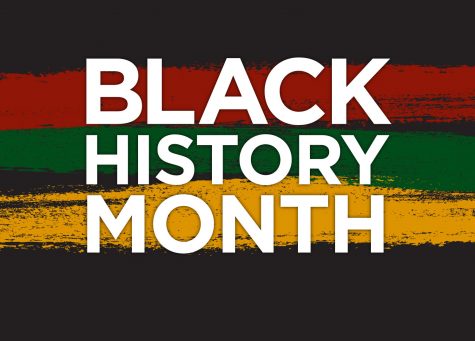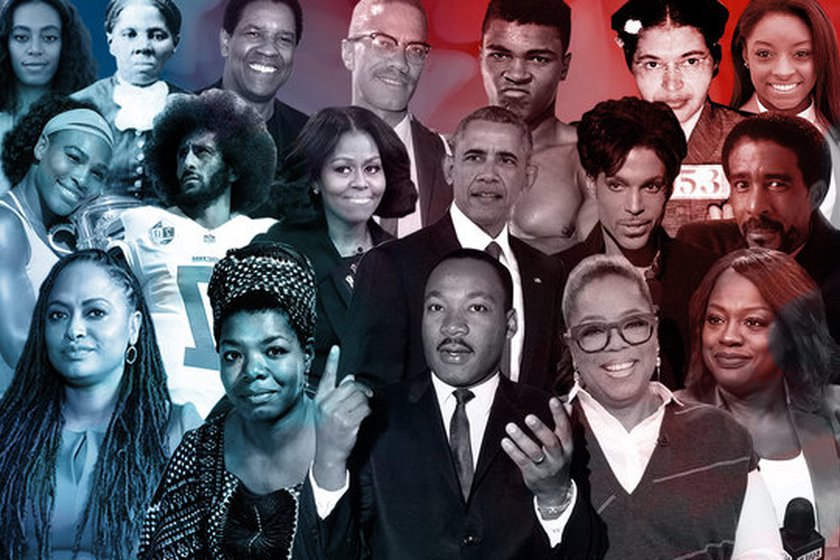Black History Month Events Focus on Present
As the university begins its annual Black History Month events, faculty and event planners are putting their focus on racism in the present day.
Black History Month has been celebrated on campus for years but this year, the focus will not just be on the past, but on the present and what racism looks like in modern-day America.
Linh Nguyen, manager of multicultural inclusion initiatives, participated in the planning of the events alongside faculty members from departments like Campus Ministry and Mission Integration.
“I love collaboration. So I love being able to see what other offices come up with and so I completely encourage collaboration and being able to come up with different events altogether, which is basically what we did,” Nguyen said. “We tapped into different pockets of people and what naturally would fit into the schedule.”
She explained one of the main messages of this year’s events are to celebrate black culture and history.
“I think, one, it’s being able to celebrate black history and black culture and being able to emphasize their value in our community; you know, being able to understand that they have a huge part in our history and being able to commemorate them for that,” she said.
However, Nguyen also said the more important message is understanding and recognizing what racial injustice is in the present day.
“I’m currently teaching the Cultural Minorities class out of sociology and we just went through basically how race was created and how the U.S. was founded in the 1600s and black people were just given ‘human rights’ in the 1960s,” she said. “So, thinking about the history of the United States and where race and racism were basically created and, knowing that people of color, especially black African American people, only had ‘rights’ for a little over 50 years, it’s kind of mind-boggling. It makes sense why we’re having these conversations because we, as a nation, are over 400 years old and we’ve only had 50 some years of ‘rights’ for people of color.”
Nguyen wants people to understand that racism is still an issue, despite the progress the country has made.
“You hear people say we’re in a post-race society ever since Obama was in administration and it’s like no,” Nguyen said. “It is impossible for us right now to back track on centuries of racism, so I think part of these events are talking about the current racial statuses and racial injustices that are happening in different facets whether it’s in the media, whether it’s immigration, whether it’s the Black Lives Matter movement, or just being a person of color in the United States in general.”
The events will include more discussion panels, movies and art-focused activities like painting and plays in the hopes that students will feel more comfortable engaging in these kinds of conversations.
Iana Davis, senior mass communications and design major, expressed how crucial it is to have these kinds of events.
“I wish professors would stop thinking about lecturing to us,” she said. “You guys always want to give us dinner and a lecture instead of creating a conversation where you bring all these awesome and positive minds together that could really think of some things that we could do differently on campus. But, instead of using the awesome minds that you mold here on campus, they continue to throw more facts at us that go in one ear and out the other, so it’s like you have to change the narrative for us.”
Davis noted that, because many of the events in the past have been lecture-based, not many students attend them. She thinks if the events encouraged students to use their voices, more would be inclined to attend and see the importance of having them.
“These events, as much as they want them to matter, they don’t matter because students are still mad we don’t get Martin Luther King Day off,” she said. “If you think kids are more focused on the fact that we don’t get the day off, do you really think they’re going to care about events that you guys have dragged on throughout the day? Plus, with our busy schedules, classes, sports and clubs, you want us to go to an event where you’re going to lecture at me with the possibility of snacks and food? If they don’t change the narrative of these events and really change how they’re doing things, these things aren’t going to do anything for anybody. They’re not going to help anyone.”
Nguyen said the importance of these events lies in recognizing there is still much more progress to be made and hopes students living in this generation will pick up on this.

“Yes, we have come ‘so far’ in a certain amount of time, but at the same time, we are so far from reaching liberation,” she said. “We are so far from reaching racial equality and equity. We’re in a really interesting stage right now because more and more of these facts are coming to life. Right now, college students are in a generation where they’re realizing that not everything is about the Indians and Pilgrims having Thanksgiving together and having this beautiful meal. It’s not about MLK giving his ‘I Have A Dream’ inspirational speech but understanding what he sacrificed for racial equality and for the poor. I think we are working with students who know America’s history isn’t so light and fluffy, so I think it’s a really pivotal time in education where we start pushing forward and having these real conversations about the injustices that are happening in our nation and what we can do about it, not just at the individual or community level, but also globally.”
Nguyen is looking forward to the art-focused events, especially the play “White Rabbit Red Rabbit” on Feb. 7 and the musical “Turning 15 on the Road to Freedom” on Feb. 21 and exploring how they can celebrate the month in different ways.
For future events, she would like to do an on-campus march in honor of Dr. Martin Luther King, Jr. and discuss the rise of athlete activism over the years.
“I think that’s a really interesting topic a lot of our students would be interested in, too, being able to understand that athlete activism isn’t a new thing,” she said. “It’s gone back for years and being able to see the progression of statements people have made, whether it’s behavioral or through the media, and know with social media how easy or difficult it is to share your activism. I think that would be a cool discussion.”
Davis doesn’t know how many events she will attend this year but hopes there will be more discussion of the solutions instead of just the problems.
“Last year, I was really big on going to a lot of these events, but what I learned is that everything is still pushed or revolves around violence,” she explained. “I only see them reiterating the violence and it only brings up the hurt and the pain that I feel, knowing that my ancestors had to go through that, knowing that I’m still watching little kids being hung from trees or burned on crosses in different countries and people are saying they haven’t seen it. That bothers me. Let’s talk about that. Let’s stop talking about everything that already happened in the past, all the scars, all the bruises, all the suffering. Let’s stop talking about that stuff and let’s focus on the solution; let’s focus on the change.”
She believes, if these conversations don’t start happening, it will be impossible for society to change.
“We all come here for a better life. Everyone is in college to achieve something,” Davis said. “You want that degree; you want to go somewhere, But, at the end of the day, you have to know how to be a people person. You have to know how to work with every person you come in contact with, whether it’s good or bad, so these things are very detrimental and that’s another reason the culture outside of this college doesn’t change, either. Our society isn’t changing because the culture won’t change either, so it’s just going to continue to be a clash.”
Nguyen agreed, adding she thinks these events will continue to be needed until people start celebrating differences throughout the whole year.
“Black History Month shouldn’t just be Black History Month. We shouldn’t just be celebrating black history or black culture or MLK in February; they should be celebrated all year round,” she said. “In all of the classes, we should be making sure that we are highlighting literature and authors and researchers from all different cultures and backgrounds and creeds and races and sexual orientations and be able to celebrate each and every identity all the time. So, until we get to that point, I will take the month and a half we do get to celebrate these specific identities but, hopefully, in the future it just becomes first nature for everyone to highlight who people are.”
The first step toward that, Nguyen believes, is for people to become more knowledgeable. She hopes these events can help with that.
She also thinks people should open their minds more.
“I think it’s really good for everyone to come to these events because you don’t just gain empathy from it; I think it challenges your world view,” she said. “So, a lot of the times, you just trust the things you learned growing up and a lot of it is sugar-coated and sometimes it’s hard to code switch that in your head. So, being able to challenge the things you learned in the past and being able to align yourself with what you currently believe in, that’s critical to being an adult and a member of society.”
Davis hopes anyone attending these events steps up to help change the perspective of the entire university.

